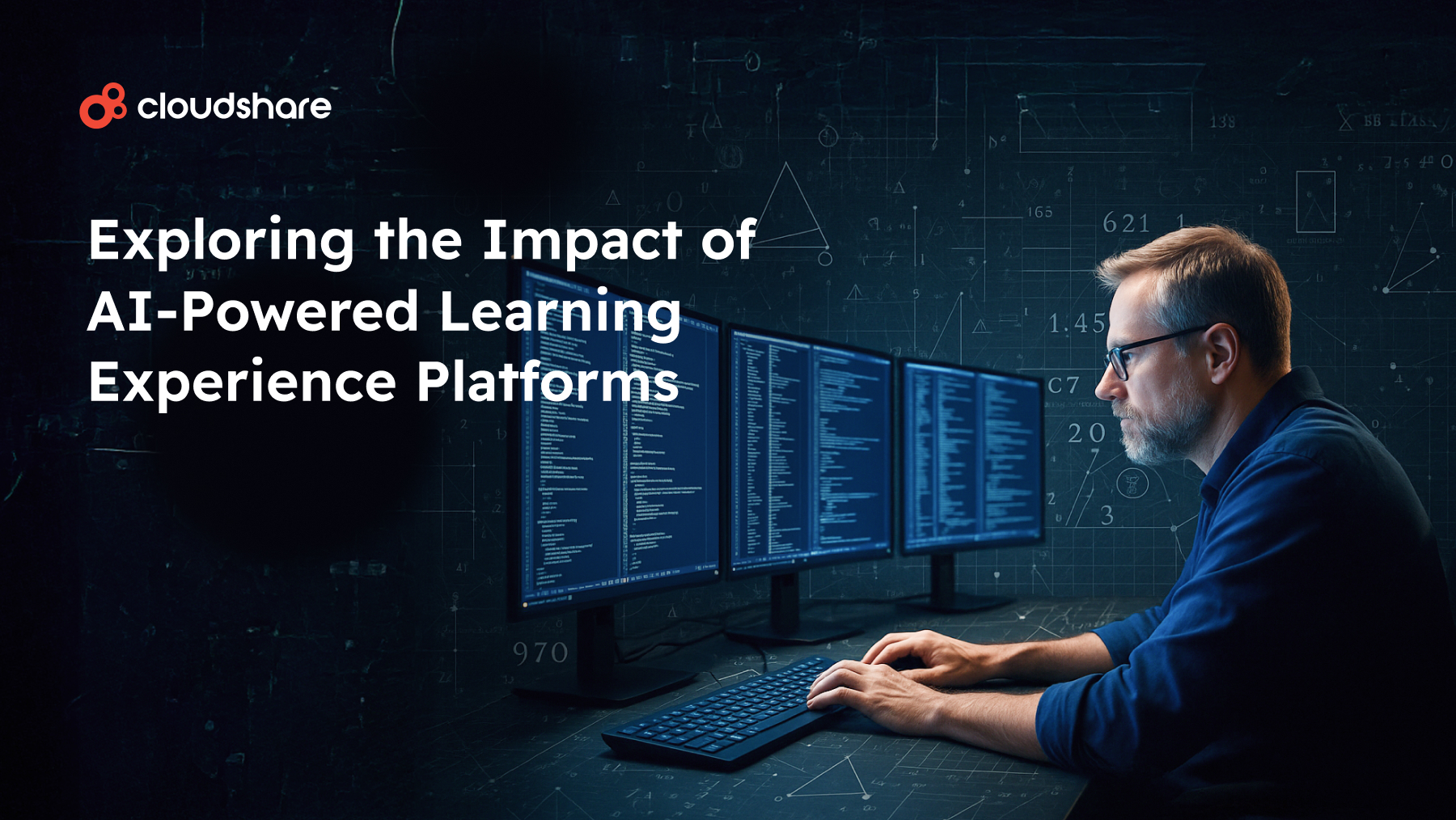
AI is reshaping how training is designed, delivered, and optimized. From personalized learning paths to automated assessments, it’s driving faster, smarter, more scalable experiences.
Adaptive learning platforms provide a level of dynamic personalization that was previously near-impossible at scale, while algorithms exist for everything from course design to instruction and assessment.
WhereAI really shines, however, is when it’s used to augment learning experience platforms.
AI is redefining how people learn. So, what does this mean for the future of CEd and L&D?
Key Takeaways
- More organizations than ever are using artificial intelligence in training.
- AI has immense potential when it comes to delivering more compelling and effective learner experiences.
- AI technology is evolving fast, and it’s difficult to predict how the landscape will change.
What is an AI-Powered Learning Experience Platform?
A learning experience platform (LXP) may fulfill a similar purpose to a learning management system (LMS), but prioritizes personalization and learner engagement.
Many LXP tools are also AI-driven, using the technology to generate content, support adaptive learning, and manage training programs.
The Role of AI in Learning and Development Programs
AI has had a measurable impact on students, instructors, and instructional designers alike. Over the past several years, it’s inspired businesses to completely rethink their approach to training in terms of optimizing materials, workflows, and skill validation.
Common use cases include:
- Identifying individual and organizational knowledge and skill gaps through data analysis
- Creating dynamic learning paths for each individual by analyzing their profile, behavior, and performance
- Automating repetitive administrative tasks such as grading and data entry, allowing instructors to focus more attention on training
- Delivering real-time feedback and guidance to help both learners and organizations track and measure progress
- Using targeted upskilling to enhance customer and employee performance and improve job satisfaction
Key Benefits of Using AI in Corporate Learning
The capacity to scale and support nearly any number of students is one of the most significant benefits of personalized AI learning. Curricula and assessments can be both tailored and customized to each individual’s needs, ensuring that trainees don’t waste time on non-relevant skills.
This personalization is augmented by immediate, on-demand feedback. Some LXPs even use AI to provide tailored guidance and advice, giving participants access to an assistant that helps them through their training.
Unsurprisingly, the combination of personalized content, instant feedback, and immediate guidance tends to greatly improve both engagement and outcomes. Meanwhile, AI can analyze learner behavior and performance to provide the organization with insights on how and where its training can improve.
Finally, AI reduces workload and overhead through automation, saving time and money, which can then be redirected elsewhere.
How Personalized AI Learning is Changing the Landscape
Artificial intelligence has immense potential where education is concerned. We’ve really only just started to scratch the surface of what it can do.
While we can’t say for sure how it’s going to evolve in the coming years, we can take an (educated) guess by looking at how it’s been applied in higher education.
- AI will be fully integrated into the workplace, resulting in smart offices that support creativity, learning, and productivity.
- Predictive analytics will allow organizations to identify potential skill gaps and knowledge gaps before they become operational issues.
- Incredibly immersive virtual learning experiences at the intersection of AI and virtual reality will become the norm — we’re already seeing glimmers of this in healthcare.
And that’s just the start. Five years ago, no one could have predicted the rise of generative AI. Five years from now, it may have transformed education in ways none of us expects.
At least one thing is unlikely to change, though: whatever happens, AI will remain an integral part of the learner experience.
AI in Learning Isn’t the Future… It’s Already Here
AI is no longer a bonus feature in corporate training. It’s the engine behind smarter, faster, more effective learning programs. From real-time personalization to immersive, hands-on practice, organizations are using AI to close skill gaps before they become business risks.
If your team isn’t already exploring AI-powered learning platforms, it’s time to catch up. The technology is moving fast, and those who embrace it today will be leading the line tomorrow.
Ready to take advantage? Learn more about the top learning experience platforms for 2025, and how they stack up against real-world use cases.
FAQs
What is an AI-powered learning experience?
AI-powered learning experiences use technologies such as machine learning and generative artificial intelligence to deliver personalized, interactive content tailored to a participant’s individual needs and skills. They analyze organizational data and learner patterns both to tailor content and deliver insights to training leaders.
How is AI used in learning and development?
CEd and L&D professionals may use artificial intelligence to identify skill gaps, develop personalized learning paths, generate training content, deliver real-time feedback, and automate administrative tasks. AI-driven platforms may also integrate with tools like virtual labs and VR systems for more immersive training.
Can AI improve learner engagement and performance?
It can and does!. Through personalization, immediate feedback, and on-demand assistance, AI guides learners throughout their training, providing them with the knowledge and support they require to excel.
What’s the future of AI in hands-on virtual training?
Virtual reality, for one. AI will eventually power complex virtual simulations, using predictive analytics to provide a level of experience that was previously available only in the field.




